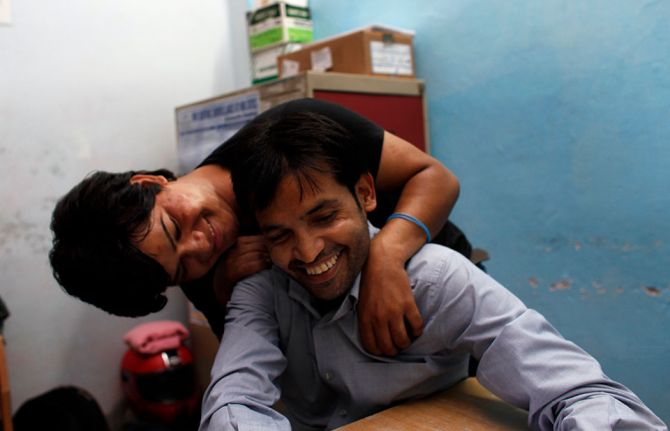

Press Statement
UNAIDS welcomes ground-breaking decision by India’s Supreme Court that strikes down law criminalizing LGBTI people
06 September 2018 06 September 2018GENEVA, 6 September 2018—UNAIDS welcomes the decision of the Supreme Court of India to annul key provisions of Section 377 of the Indian Penal Code. Section 377 criminalizes sexual relations between lesbian, gay, bisexual, transgender and intersex (LGBTI) people.
“Today is a day of gay pride, a day of celebration, a day when respect and dignity was finally restored in India for lesbian, gay, bisexual, transgender and intersex people,” said Michel Sidibé, Executive Director of UNAIDS. “I applaud the brave activists, civil society organizations and community groups that have fought long and hard for this injustice to be reversed.”
Criminalization of consensual same-sex sexual relations is a violation of human rights and legitimizes prejudice and violence against LGBTI people. Criminalization hinders people from accessing and using HIV prevention, testing and treatment services and increases their risk of acquiring HIV.
In India, HIV prevalence among gay men and other men who have sex with men is 2.7% and among transgender people is 3.1%, compared to the national HIV prevalence among all adults of just 0.26%. Around three out of ten gay men and four out of ten transgender people in India who are living with HIV do not know their HIV status. Many LGBTI people living with HIV do not have access to HIV treatment.
Gay men account for 18% of all new HIV infections worldwide. UNAIDS urges countries to ensure the full respect of the human rights of all people, regardless of their sexual orientation, through repealing laws that prohibit sex between consenting adults in private, enforcing laws to protect people from violence and discrimination, addressing homophobia and transphobia and ensuring that crucial health services are made available.
“I hope this decision sets the trend and is followed by similar decisions in other countries that remove unjust laws criminalizing homosexuality,” said Mr Sidibé.
In June 2016, United Nations Member States committed in the Political Declaration on Ending AIDS to promote laws and policies that ensure the enjoyment of all human rights and fundamental freedoms for children, adolescents and young people, particularly those living with, at risk of and affected by HIV, so as to eliminate the stigma and discrimination that they face.
UNAIDS
The Joint United Nations Programme on HIV/AIDS (UNAIDS) leads and inspires the world to achieve its shared vision of zero new HIV infections, zero discrimination and zero AIDS-related deaths. UNAIDS unites the efforts of 11 UN organizations—UNHCR, UNICEF, WFP, UNDP, UNFPA, UNODC, UN Women, ILO, UNESCO, WHO and the World Bank—and works closely with global and national partners towards ending the AIDS epidemic by 2030 as part of the Sustainable Development Goals. Learn more at unaids.org and connect with us on Facebook, Twitter, Instagram and YouTube.
